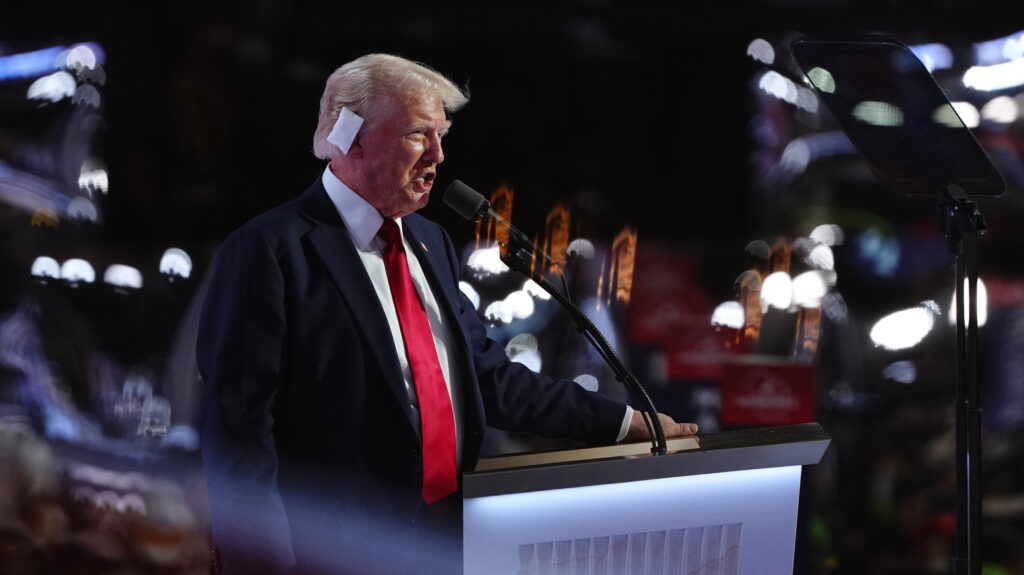Two Venezuelan women have spoken out against the Trump administration’s controversial deportation policy, claiming they were misled and nearly sent to prison in El Salvador under false pretenses. The women, part of a mass deportation initiative targeting alleged gang members, say they were shackled, coerced, and never told the truth about where they were being taken.
The deportation program, executed in March 2025, relied on the Alien Enemies Act of 1798 — an obscure wartime law originally meant to authorize the removal of foreign nationals considered threats during hostilities. Hundreds of Venezuelan migrants were rounded up and flown to El Salvador, accused of affiliation with the violent Tren de Aragua gang.
But questions about the legality and ethics of the move are now mounting.
A Shocking Journey
The two women, who requested anonymity for safety reasons, shared that they were told they would be deported back to Venezuela. Instead, they were flown to El Salvador on a military-style flight and handed over to Salvadoran authorities — who promptly refused to admit them.
“We were lied to,” one woman told The Atlantic. “They told us we were going home. They never mentioned El Salvador until we landed.”
Worse, the women said they were forced to sign documents written in English, a language they do not speak fluently. These documents allegedly included confessions to being members of Tren de Aragua — a charge they vehemently deny.
According to human rights organizations, many of the detainees were accused of gang affiliation based on flimsy evidence such as tattoos, social media posts, or anonymous tips.
El Salvador Refused to Accept Women

While many of the male deportees were placed in prison in El Salvador, the Salvadoran government refused to accept female prisoners, citing safety and capacity concerns. As a result, the two women and several others were returned to the U.S., further complicating the administration’s narrative.
A spokesperson for El Salvador’s Ministry of Justice stated, “We were not informed in advance about the nature of these deportees, nor were we prepared to accept women accused of serious gang affiliations without evidence.”
Legal and Human Rights Outcry
Legal experts and immigrant advocacy groups have sharply criticized the Trump administration’s use of the Alien Enemies Act in a peacetime immigration context. They argue the law was never intended to target refugees or asylum seekers from countries like Venezuela, with whom the U.S. is not at war.
“This is an unprecedented abuse of an archaic law,” said Laura Peña, an immigration lawyer with the American Immigration Council. “These deportations bypassed due process and relied on unreliable or secret evidence.”
The American Civil Liberties Union (ACLU) has called for an independent investigation into the deportation flights, citing violations of international asylum laws and lack of transparency.
State Secrets and Transparency Concerns
The Trump administration has defended the policy, with Homeland Security officials stating that deportees had been vetted using intelligence sources. However, in a troubling development, the administration invoked the state secrets privilege to withhold details about the flights and evidence used to justify them.
This move has sparked concern among civil liberties advocates.
“Using state secrets to shield immigration operations from judicial review is deeply concerning,” said David Cole, national legal director for the ACLU. “It denies individuals the right to challenge their removal and conceals potential misconduct.”
A Department of Homeland Security official, speaking on background, claimed the mass deportations were necessary to address a spike in organized crime linked to Venezuelan migrants. However, DHS has not provided public evidence supporting that assertion.
Political Repercussions
The deportations have reignited the political debate over immigration enforcement and the use of executive powers. Critics argue the policy was designed to project a tough-on-crime image rather than address genuine national security threats.
Senator Alex Padilla (D-CA) has called for congressional hearings into the matter. “We need answers. The American people deserve to know whether this administration violated the rights of vulnerable migrants under the guise of national security,” he said.
Meanwhile, the two women are receiving legal assistance and pursuing asylum claims. Their case, along with dozens of others, may become a pivotal legal battle over the limits of presidential authority in immigration matters.
Resources for Affected Individuals

Migrants or their families seeking legal help can contact organizations such as:
- National Immigration Law Center (NILC)
- Immigrant Legal Resource Center (ILRC)
- United States Citizenship and Immigration Services (USCIS) for official asylum and deportation appeal procedures
As investigations continue, one truth remains: many of those caught in this sweeping policy say they were misled and left traumatized by a system they barely understood. Their stories are a stark reminder of the human cost of immigration enforcement decisions.

Vikas is a seasoned finance writer with a keen eye for unraveling complex global financial systems. From government benefits to energy rebates and recruitment trends, he empowers readers with actionable insights and clarity. When he’s not crafting impactful articles, you can find him sharing her expertise on Social Media. You can connect with him via email at [email protected].









